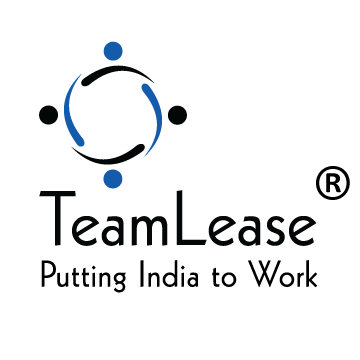How the Digital Revolution is Changing the Hiring Landscape

Digital revolution has opened boundless job opportunities, transforming how employers and job seekers connect. Digitisation remains a top priority for over 2,000 staffing professionals, as highlighted in this year’s Global Recruitment Insights and Data (GRID) Industry Trends Report. Beyond a mere buzzword, it is essential for achieving long-term, sustainable growth. As projected by NASSCOM, the IT industry body, the Indian technology sector would experience a growth rate of 8.4% during FY 2023, reaching a market size of $245 billion, driven by digital transformation and rising demand for skilled professionals. Addressing challenges and equipping the workforce with digital skills is vital.
According to TeamLease Jobs and Salaries Primer Report FY 2022-23, the demand for Sales and IT roles remains high as businesses continue to prioritise these functions for growth and digitisation initiatives. Additionally, the Agriculture and Agrochemicals industry has undergone significant digital transformation, translating into a slew of hot jobs that pay handsomely.
Digital revolution is reshaping recruitment practices
Streamlined talent acquisition: Digital transformation has streamlined the process of finding and hiring talent. Online job boards, social media platforms, and professional networking sites have become powerful tools for recruiters to connect with potential candidates, enabling them to reach a wider audience and identify candidates with specific skill sets more efficiently.
Better talent pool management: Digital tools and platforms help maintain and manage talent pools more effectively. It helps recruiters keep track of candidate preferences, skills, and availability, allowing for faster and more accurate candidate matching in the future.
AI-powered candidate screening: AI and machine learning algorithms have been integrated into applicant tracking systems (ATS) to automate the initial screening process. This helps in filtering through large volumes of resumes and identifying the most suitable candidates based on predefined criteria, saving time and effort for recruiters.
Enhanced candidate experience: Digital transformation has improved the overall candidate experience. The use of digital communication tools, such as chatbots, email, and video conferencing, has made it easier for recruiters to engage with candidates throughout the hiring process, providing timely updates and feedback.
Remote hiring and onboarding: COVID-19 pandemic accelerated the adoption of remote hiring and onboarding processes. Digital tools and platforms enable recruiters to conduct virtual interviews and assess candidates’ skills effectively, even if they are located in different parts of the world.
Data-driven insights: Collecting and analysing vast amounts of data related to talent acquisition and hiring processes has been enabled through digital transformation. These data-driven insights help recruiters make more informed decisions, identify areas for improvement, and optimise recruitment strategies.
Skills assessment and testing: Digital tools have made it easier to conduct skills assessments and testing, allowing recruiters to gauge a candidate’s abilities accurately and objectively. Online skill assessment platforms offer a wide range of tests, from technical skills to cognitive abilities.
Automation of administrative tasks: Digital transformation has automated many administrative tasks involved in the staffing process, such as document management, contract generation, and background checks. This allows recruiters to focus more on strategic tasks and building relationships with candidates and clients.
Improved employee engagement: For companies, digital transformation has extended beyond the hiring process. It has also improved employee engagement and productivity within the organisation. Tools like collaboration software, project management platforms, and HR analytics enable better team communication and performance monitoring.
Personalised learning and development: Digital revolution has facilitated the delivery of personalised learning and development programs for temporary and contract workers. This enhances their skills and makes them more marketable in the evolving job market.
Overall, leveraging technology enhances process efficiency, cost reduction, and quality, leading to a more effective on-boarding experience. Digitisation or digital revolution has undoubtedly brought about significant benefits and opportunities like streamlined processes, fast hiring, and augmented access to talent pools, opportunities for improved efficiency and cost-effectiveness. However, it also comes with its fair share of challenges that job seekers and employers must navigate.
Unlock the power of workforce optimization with TeamLease! We specialise in innovative tech-driven solutions for temporary and contract staffing. Let’s collaborate for a sustainable future of work. Contact us now!
Latest Blogs
Apprenticeship India: A Guide to NAPS, NATS & Compliance
As India strengthens its workforce strategy, apprenticeship initiatives in India are gaining renewed relevance for employers across sectors. With skill gaps widening and compliance requirements...
Read MoreHow Apprenticeships in India Help Build Job-Ready Talent?
In a fast-evolving job market, businesses across India face a common challenge: finding candidates who are not just qualified on paper but ready to perform...
Read MoreStrategic Workforce Planning in India: Why Smart Talent Strategy is Important?
For years, strategic workforce planning in India was treated as a back-office exercise—something to be revisited when hiring pressure built up or attrition spiked. That...
Read MoreUnion Budget 2026–27 Decoded: What MSMEs and HR Leaders Need to Know
The Union Budget 2026-27, presented on 1 February 2026, signals a deliberate shift toward employment-centric growth, combining sectoral demand creation with long-term investments in skills,...
Read MoreNew Labour Codes: A Compliance Guide for Employers
India’s labour landscape has entered a historic transition with the notification of the four consolidated Labour Codes—the Code on Wages (2019), Industrial Relations Code (2020),...
Read More





